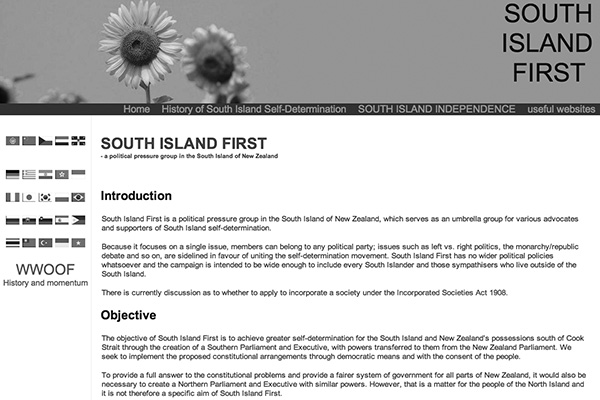Provincials Reach For Their Pitchforks
Dunedin businessman Ian Taylor formulated the idea in conjunction with the Otago Daily Times’ “Stand Up, Otago” front-page editorial of 3 August. The piece was aimed at mobilising people to fight for South Island jobs.
Taylor spearheaded the movement in response to high-profile job cuts on the outskirts of Dunedin, and believed that a political party would “bowl in” to Parliament if it won seats in Dunedin, Southland and Waitaki.
“Now is the time to take our future in our own hands and do something about it ... [to] come together and force the politicians to take notice. No-one else will. It is up to us to stand up and be counted and the best way to do that is from the inside,” he told the ODT.
Located between Dunedin and Mosgiel, Invermay Agricultural Centre is set to lose 85 highly skilled jobs to either Lincoln or Palmerston North in 2016. This amounts to three-quarters of the current jobs at the research centre. Otago Chamber of Commerce President Peter McIntyre says he has heard rumours of “empire-building within Lincoln University,” suggesting deliberate poaching of Otago-based researchers.
Taylor believes that more regional-based political movements will evolve with time, following similar lines to the party he has envisioned.
He is particularly concerned with nationwide prioritising of major centres, stating that “we’re being left on the peripheries of this mad dash to rebuild Christchurch and keep making Auckland bigger.”
Calls for an increasingly autonomous South Island echo previous movements in the 19th century, along with some more recent political activities. In the 1860s many of Otago’s more prominent residents called for secession from the North Island after the 1861 gold rush resulted in newfound prosperity. Premier Julius Vogel himself was well known for nursing secessionist tendencies in his early years. He was dismissed from his editorship of the Otago Daily Times in 1868 for encouraging an independent South Island.
More recently, two political movements (each named the South Island Party) have attempted to enter New Zealand’s Parliament, one in 1999 and the other in 2008. The 1999 iteration secured 0.14 per cent of the total vote, and Richard Prosser’s 2008 attempt failed to register as a party. Prosser instead chose to merge with South Island First, a non-partisan pressure group whose website operates on the back of Amber House, a Nelson-based bed & breakfast. (amberhouse.co.nz/south-island-first.html)
Meanwhile, 180 jobs are to be axed from Ruakura in Hamilton, the current base of Invermay’s parent company AgResearch. No plans for a seperatist Waikato political movement have emerged as of yet.




